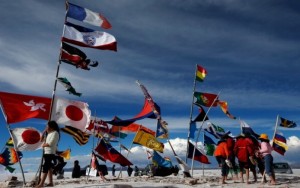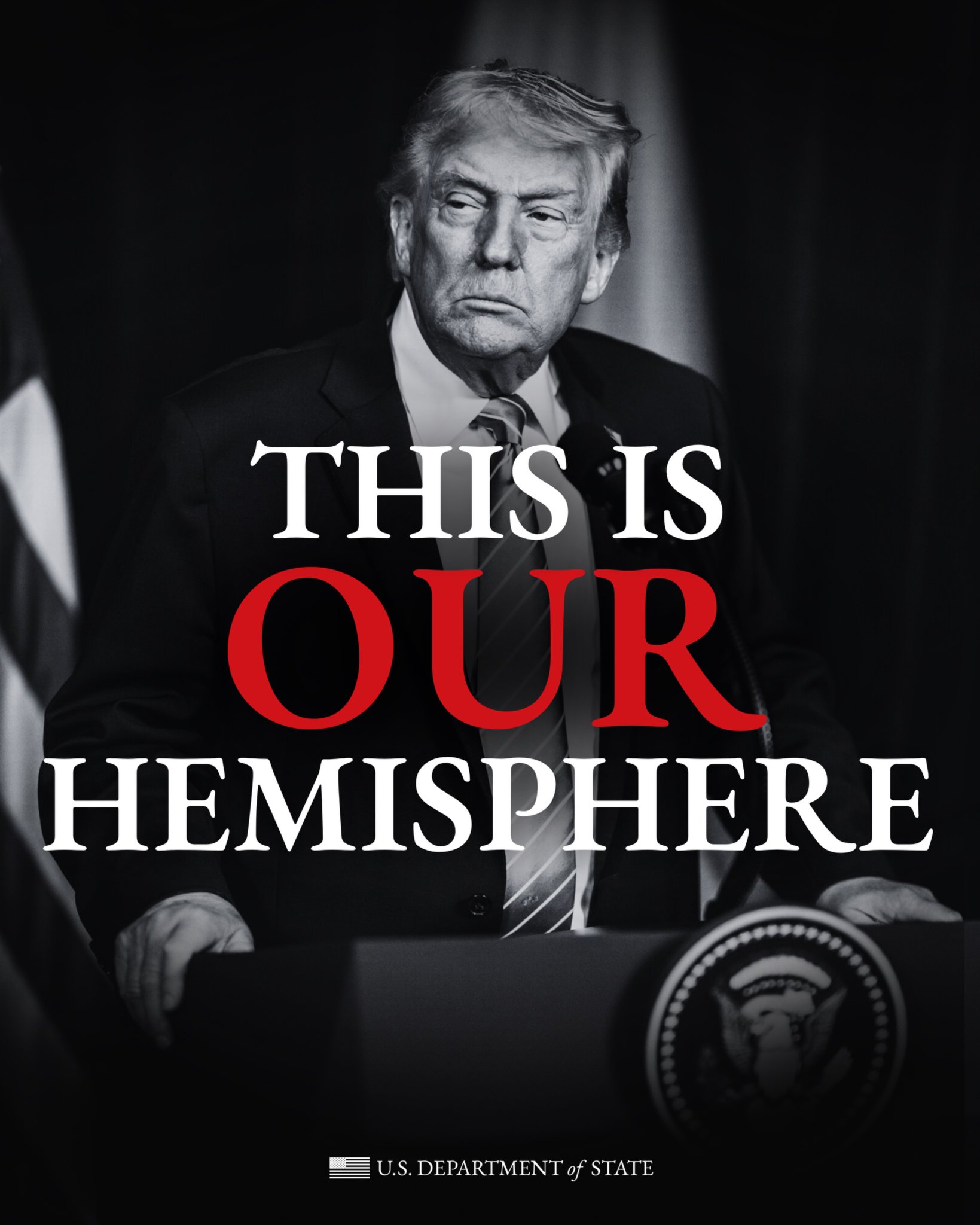 The International Court of Justice at The Hague on 24 September 2015 found it has jurisdiction in The Obligation to Negotiate Access to the Pacific Ocean (Bolivia v. Chile).
The International Court of Justice at The Hague on 24 September 2015 found it has jurisdiction in The Obligation to Negotiate Access to the Pacific Ocean (Bolivia v. Chile).
The dispute involves Bolivia’s perennial efforts to regain sovereign access to the Pacific Ocean lost to Chile in the War of the Pacific (1879-1883). In April 2013, Bolivia had asked the Court to find that Article XXXI of the Pact of Bogotá (American Treaty on Pacific Settlement) gave it jurisdiction in the seaport issue while Chile contended it did not have jurisdiction under that provision, arguing the dispute had been resolved definitively in a 1904 treaty.
Ongoing dialogue
The Court’s ruling was not a surprise. During oral arguments on jurisdiction, Bolivia developed the more persuasive legal case. Chile argued that the 1904 Treaty of Peace, Friendship, and Commerce is a definitive peace treaty that closed the matter. Bolivia countered, noting that Chile on several occasions after 1904 agreed to discuss the question of sovereign Bolivian access to the Pacific. Bolivia cited numerous examples in support of this assertion, including formal or informal exchanges in 1918-1923, 1926, 1950, 1961, 1975-1978, and 1986-1987.
Bolivia centered its argument on bilateral talks in 1950 in which it proposed direct negotiations to Chile aimed at granting Bolivia a sovereign exit to the Pacific Ocean. Chile agreed to discuss the issue, however, negotiations made little progress after Santiago raised the question of compensation and noted that the 1929 Tacna and Arica Treaty and Additional Protocol obliged it to consult with Peru.
In an equally telling exchange, Chile in 1975 offered Bolivia sovereign access to the sea through a corridor running along the Chile-Peru border to the Pacific. In the course of these talks, which became trilateral after Peru inserted itself into the exchange, Chile and Peru clearly recognized Bolivia’s right to access to the sea.
Obligation to negotiate
Chile argued that Article VI of the Pact of Bogotá excluded the Court’s jurisdiction in any matter settled by arrangement before the conclusion of the Pact of Bogotá in 1948. Bolivia effectively undermined this argument by detailing the series of bilateral talks and exchanges after 1904. As Payan Akhavan, an international lawyer representing Bolivia before the Court, noted in his summary of the Bolivian case: “If the 1904 Agreement closed the matter of sovereign access forever, what was the meaning of these [post-1904] negotiations?”(1)
Bolivia argued that Article XXXI of the Pact of Bogotá provides for the Court’s jurisdiction in disputes involving “any question of international law” or “breach of an international obligation,” and so affirms the Court’s jurisdiction in this case.(2) Emphasizing that it had not come before the Court to reject the 1904 treaty or to reopen agreed-upon issues, Bolivia argued that it had come before the Court because Chile had failed to fulfill its obligation, despite repeated promises, to negotiate sovereign Bolivian access to the sea.
The Court agreed with Bolivia, concluding “the subject-matter of the dispute is whether Chile is obligated to negotiate in good faith Bolivia’s sovereign access to the Pacific Ocean, and, if such an obligation exists, whether Chile has breached it.”(3)
The Agent of Chile, Felipe Bulnes Serrano, also argued that a Court decision to accept jurisdiction in the case would compromise the authority of Article VI of the Pact of Bogotá, resulting in a long “list of historical issues that could be reopened” before the Court.(4) This argument did little to enhance the overall Chilean case on jurisdiction because it was not developed in detail, appearing almost as an afterthought. Moreover, its relevance was questionable. Paraguay is the only other landlocked state in South America, and outside the continent, the prolonged nature and unique history of Bolivia’s quest for sovereign access to the sea appeared to limit the scope of any Court decision as a precedent.
Of the 16 judges on the Court, 14 confirmed the admissibility of the case. The remaining two judges held that a decision on the admissibility of the case should be delayed until its merits were heard. None of the 16 judges held that the case was inadmissible, as Chile had affirmed, a measure of the strength of the Bolivian argument.
In a public opinion poll published in the Chilean daily El Mercurio on the day of the Court decision, 86% of Chileans opposed giving Bolivia sovereign access to the sea through Chilean territory. The Michelle Bachelet administration reluctantly accepted the Court’s ruling, but showed no interest in opening bilateral talks with Bolivia. In a speech to the UN General Assembly five days later, President Bachelet did not refer to the Court’s decision; instead, she stressed the need for nations to respect the inviolability of all treaties.(5)
Bolivian strategy
The different characterizations of the dispute by Bolivia and Chile were reminiscent of two ships passing on a dark night. Chile focused on the 1904 treaty as a definitive treaty of peace, friendship, and commerce, and Bolivia argued Chile had repeatedly recognized an obligation after 1904 to negotiate sovereign Bolivian access to the Pacific Ocean. Bolivia more than Chile focused on the issue before the Court, whether or not it enjoyed jurisdiction in the case. In challenging the Chilean argument that Article VI of the Pact of Bogotá precluded the Court’s jurisdiction, Bolivia effectively and convincingly detailed that Chile had repeatedly demonstrated after 1904 – and after 1948 – an obligation under Article XXXI of the Pact to provide Bolivia sovereign access to the sea.
The Court decision was a major win for Bolivia. Vice President Alvaro García Linera called it the first victory against Chile on the issue of a sovereign seaport in 136 years. The success of the Bolivian initiative was due to the approach adopted by the Evo Morales administration. In the past, Bolivian governments interested in short-term political gain often manipulated the seaport issue to generate popular support. President Morales took a different approach, depicting the issue as a national cause outside ideological issues, in effect making it a matter of state. He enlisted the support of former presidents and foreign ministers, among others, and conducted an extensive and effective international media campaign.
In the days following the Court’s decision, President Morales and former President Carlos Mesa (2003-2005), the spokesperson responsible for sharing the Bolivian case with the international community, both indicated a willingness to open direct negotiations with Chile on the seaport issue. The Morales administration continued to pursue the media strategy. Shortly after the Court judgment, Mesa appeared on Chilean television, emphasizing that Chile had made promises and commitments in the past and then broken them. Stressing that a promise or formal commitment by one state to another constitutes an obligation, Mesa argued that Chile had an obligation to negotiate with Bolivia to reach an agreement granting Bolivia sovereign access to the Pacific. When Chile failed to comply with that obligation, he concluded, Bolivia was compelled to demand judicial recourse.(6)
Next steps
Cases before the International Court of Justice typically are long and protracted. The day after its ruling on jurisdiction, the Court set July 25, 2016 as the time limit for Chile to file a counter-memorial to the original complaint submitted by Bolivia. Should the case then proceed to the merits stage, a final Court decision is likely to be years in the future.
In the interim, bilateral talks between Bolivia and Chile are possible but unlikely. Chile criticized the Bolivian decision to take the issue to the Court, considering it an adversarial move, and the unfavorable decision of the Court will almost surely make Chile more resistant to bilateral negotiations any time soon.
Ronald Bruce St John has been a student of Andean politics since he first visited Bolivia, Chile, Ecuador, and Peru in 1968 in the course of researching a Ph.D. dissertation on Peruvian foreign policy. His most recent book on the region is Toledo’s Peru: Vision and Reality (University Press of Florida, 2010). He is a contributor to the Americas Program www.americas.org.
Notes:
1) International Court of Justice, “Public sitting held on Wednesday 6 May 2015, at 10 a.m., at the Peace Palace, President Abraham presiding, in the case concerning Obligation to Negotiate Access to the Pacific Ocean (Bolivia v. Chile), Preliminary Objection,” CR 2015/19, p. 54 (http://www.icj-cij.org/docket/files/153/18636.pdf#view=FitH&pagemode=none&search=%22Bolivia-Chile%22).
2) Organization of American States, American Treaty on Pacific Settlement “Pact of Bogota,” April 30, 1948 (https://www.oas.org/sap/peacefund/resolutions/Pact_of_Bogot%C3%A1.pdf).
3) International Court of Justice, Judgment, Obligation to Negotiate Access to the Pacific Ocean (Bolivia v. Chile) Preliminary Objection, 24 September 2015, p. 14 (http://www.icj-cij.org/docket/files/153/18746.pdf).
4) International Court of Justice, “Public sitting held on Monday 4 May 2015, at 3 p.m., at the Peace Palace, President Abraham presiding, in the case concerning Obligation to Negotiate Access to the Pacific Ocean (Bolivia v. Chile), Preliminary Objection,” CR 2015/18, p. 18 (http://www.icj-cij.org/docket/files/153/18628.pdf#view=FitH&pagemode=none&search=%22Bolivia-Chile%22).
5) “86% de los chilenos descarta darle un acceso soberano al mar a Bolivia,” El Mercurio, September 24, 2015 (http://impresa.elmercurio.com/Pages/NewsDetail.aspx?dt=2015-09-24&dtB=24-09-2015%200:00:00&PaginaId=2&bodyid=3); María José Ahumada, “Presidenta optó por no referirse al fallo de La Haya en su discurso ante Naciones Unidas,” El Mercurio, September 29, 2015 (http://impresa.elmercurio.com/Pages/NewsDetail.aspx?dt=2015-09-29&dtB=08-10-2015 0:00:00&PaginaId=2&bodyid=3).
6) “TVN Chile, El Informante: Carlos Mesa 1 de 2 (Parte Boliviana) 29/Sep/2015 #MarParaBolivia,” September 29, 2015 (https://www.youtube.com/watch?v=AEgmMGPRwCY).



